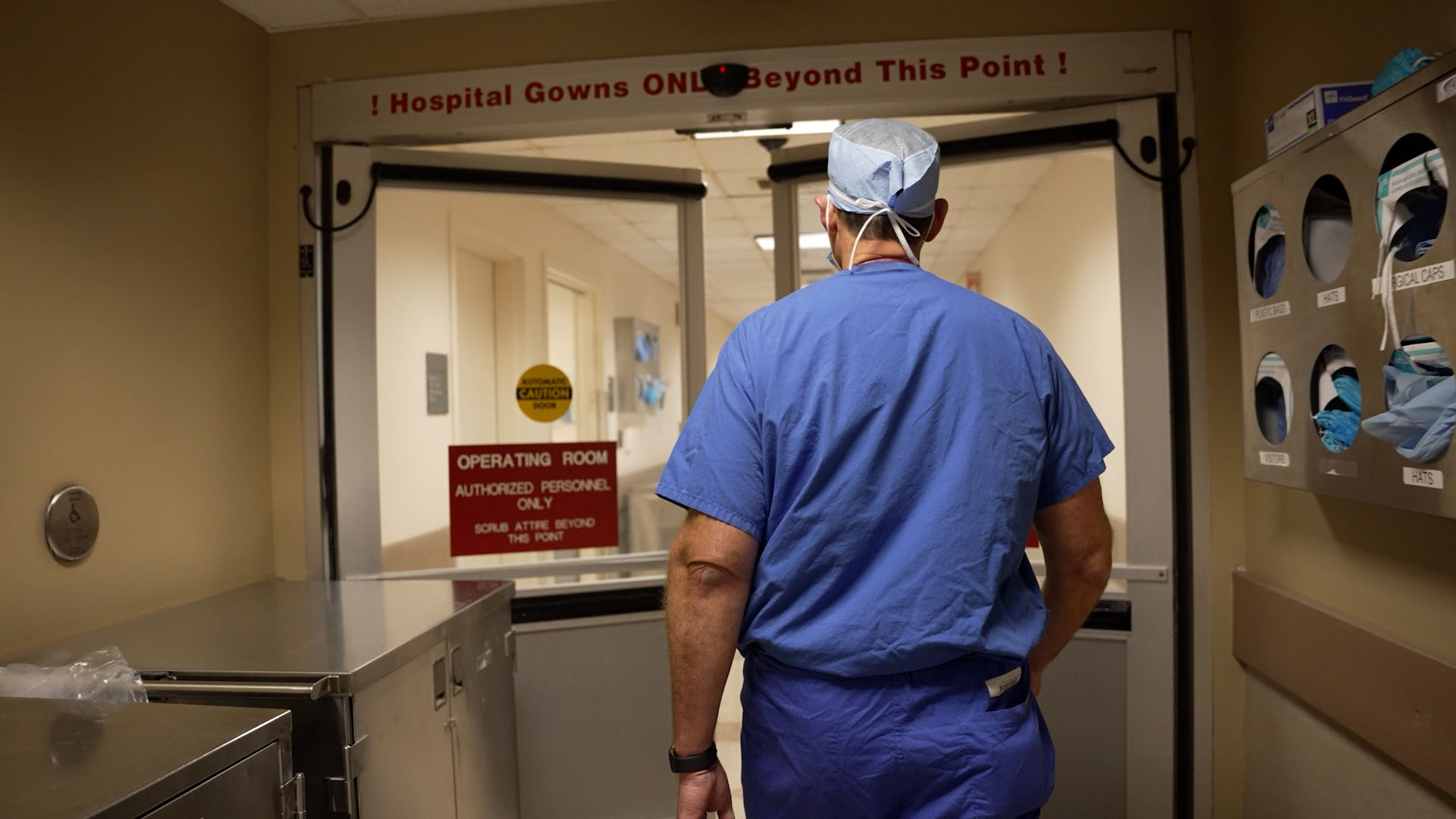FROM PREVENTION TO POST-OPERATIVE RECOVERY, HACKENSACK MERIDIAN HEALTH REMAINS ON THE FOREFRONT OF CARE FOR THE COUNTRY’S THIRD MOST COMMON FORM OF CANCER
BY AMANDA McCOY
In February 2000, President Bill Clinton designated March as Colorectal Cancer Awareness Month, noting in an official release that in that same year, 130,000 Americans would be diagnosed with the disease, and more than 56,000 of those cases would result in death. Every March thereafter, thousands of patients, survivors, healthcare professionals, and advocates would join together, donning blue, to raise awareness about the risk factors, treatment options, and preventive measures associated with CRC (colon or rectal cancer). According to the CDC, the percentage of U.S. adults aged 50-75 up-to-date with colorectal screening has dramatically increased in the two decades since, but colorectal cancer still remains one of the most common forms of cancer in the country, behind only breast and lung.

“If I was going to speak with anyone about colon cancer, the first thing I would tell them is that it is extremely common,” explained Howard Ross, M.D., chair of surgery and surgeonin-chief at Hackensack University Medical Center. “One in 20 Americans will be diagnosed in his or her lifetime. Awareness month gives us an opportunity to recognize that colon cancer is indeed so common.”
A double board-certified colon and rectal surgeon and resident “Top Doctor,” Dr. Ross joined HUMC in May 2021, and he brings to the table more than 20 years of experience and specialized training in minimally invasive surgical approaches to treating colon and rectal cancer. He explained that while innovation in laparoscopic and robotic procedures has substantially increased the efficiency of and recovery after colorectal treatments, educating the population about the importance of preventative care remains paramount in his practice.
“In terms of cause, most colorectal cancers are spontaneous,” he said. “Though family history is important, most patients do not have a family history [though, the doctor noted, odds of diagnosis are doubled for people with a first-degree relative who is diagnosed with colorectal cancer]. Any symptom of change in bowel habits, abdominal pain, or rectal bleeding needs to be investigated by a physician.”

Colonoscopy is the most common screening tool for colorectal conditions, and the standard of care recommends anesthesia we administer is incredible. Patients wake up relaxed; they don’t remember the procedure. It’s not a bad experience.”
While the majority of colorectal cancers occur in people over 50 (statistics show the average age of diagnosis for colon cancer is 68 in men and 72 in women), the number of young people developing colorectal cancers has risen sharply in the last 30 years.
“Years ago, when a 25-year-old patient presented with rectal bleeding, chances were it was caused by hemorrhoids,” explained Dr. Ross. “We would recommend a diet of fruits and vegetables. Today, I would say that patient needs a colonoscopy. It’s important for young people to understand that if they are experiencing these symptoms, they need to come in for care. One of my jobs is to push for healthcare practitioners to come to learn that any rectal bleeding needs to be pursued.”
For patients who do require surgery, Dr. Ross highlighted many of the recent advancements in minimally invasive technology that have both improved outcomes and dramatically shortened recovery times.
“The robotic platforms we use in the operating room have revolutionized colon and rectal surgery,” he continued, detailing how the platform works. “Surgeons make small cuts, then we place little tubes, and through these tubes we place robotic arms that are like fishing rods with hands on the end. The hand motion I make will then be mimicked by the robotic arm, which gives us unmatched visualization in very tight spots.”

Recovery protocols have also improved. HUMC implements ERAS (Enhanced Recovery After Colorectal Surgery), evidence-based protocols designed to standardize medical care and shorten the time patients spend in the hospital. “We provide early feeding and minimize certain types of medication that can slow the bowel down,” added Dr. Ross. “Patients can eat and walk right off the bat.”
Dr. Ross knew his career path would lead to medicine long before he enrolled in the University of Rochester School of Medicine and Dentistry, and after two decades in practice and annual screenings beginning at 45 years of age. Dr. Ross explained that through regular screening, most conditions, such as polyps, can be identified and treated before they become cancerous. Colorectal tumors are often asymptomatic, but if detected early, patients tend to have a high rate of survival.
“The dread people have with colonoscopy has to be diminished,” said the doctor, who volunteered to undergo a live colonoscopy himself to help eliminate any anxiety or fear associated with the procedure. “The preps [a combination of clear liquids and laxatives administered to empty the colon prior to the procedure] have improved in terms of both taste and volume requirement, and the earning several honors (including Physician of the Year from the Crohn’s and Colitis Foundation), he is eager to witness how innovation will continue to shape the treatment and prevention of colorectal cancers.
“The next ten years will see several advancements,” he said. “Artificial intelligence will play a larger role in how we make decisions in the OR, on the floor, and in patient care. The robotic platforms that have revolutionized colon and rectal surgery will continue to evolve. It’s an area of medicine where there’s great synergy between the manufacturers and surgeons.”

Improvements in radiation and chemotherapy have also minimized the number of surgeries needed. According to the doctor, 20% of patients with rectal cancer can be cured with chemotherapy alone, eliminating the need to undergo a major operation.
“My father is the reason I decided to pursue a career as a doctor, and seeing the body heal continues to amaze me,” said Dr. Ross. “Our patients’ ability to be cured continues to improve each year. It’s an exciting time.”

Hackensack Meridian Health
Hackensackmeridianhealth.org


